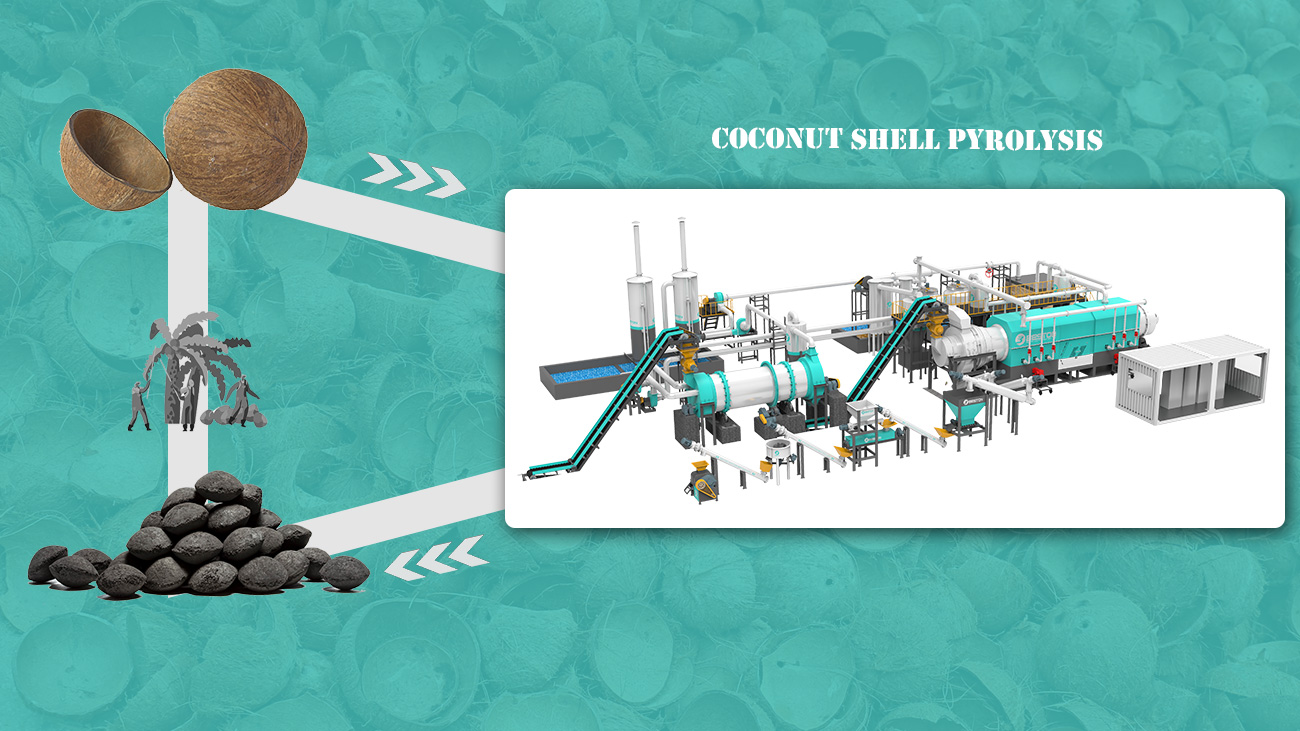Coconuts are more than just a tropical delight—they represent a powerful, sustainable opportunity for recycling and renewable energy. While the coconut industry is already known for its production of oil, milk, and fiber, there’s an often-overlooked byproduct with immense potential: the coconut shell.
From Waste to Wealth: The Hidden Power of Coconut Shells
Every year, millions of tons of coconut shells are discarded as agricultural waste. Traditionally, these shells have been burned or left to rot, contributing to environmental pollution and wasted biomass. However, recent advances in pyrolysis technology have uncovered a new, eco-friendly path for these hard shells: biochar production. This is made possible by the presence of coconut shell charcoal machine.

Why Coconut Shells?
Coconut shells are dense, hard, and rich in lignin, making them an ideal raw material for biochar—a carbon-rich product made by heating biomass in a low-oxygen environment. Unlike other forms of organic waste, coconut shells yield high-quality biochar with excellent porosity and carbon content. This makes them perfect for a range of applications:
- Soil amendment: Enhancing soil fertility and water retention.
- Carbon sequestration: Helping combat climate change by locking carbon in the ground.
- Water filtration: Acting as a natural filter due to its porous structure.
- Fuel and energy: As a clean-burning, low-emission alternative to traditional charcoal.
A Circular Economy Opportunity
Embracing coconut shell pyrolysis creates a closed-loop system in the coconut industry. What was once waste can now be turned into valuable resources, supporting sustainable farming, clean energy, and environmental restoration—all from a single, natural source.
Countries with strong coconut industries—such as the Philippines, Indonesia, India, and Sri Lanka—stand to gain significantly from investing in this technology. It’s a win for farmers, a win for industry, and a win for the planet.
Conclusion
The coconut industry is ripe for innovation. Through pyrolysis recycling, coconut shells can become a driver of sustainability and economic opportunity. It’s time to stop seeing them as waste—and start recognizing their true value.
Leave a Reply